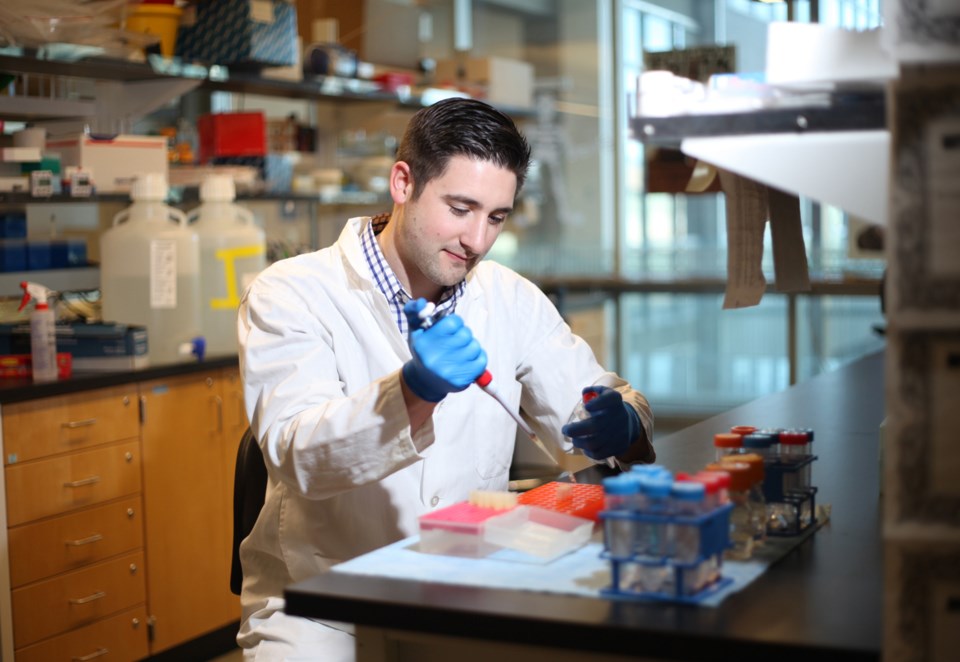It can be a major obstacle for researchers to obtain funding to conduct life-saving research, but one Simon Fraser University student doesn't have to worry about that.
SFU doctoral student Mark Labrecque is one of five graduate students across Canada to receive the Prostate Cancer Canada Graduate Studentship award – a $40,000 grant for one year to continue doctoral research in that field.
"I was extremely excited," he said about winning the award. "We work really hard to try and make sure our work is rigourous and well done, and to have a panel of experts saying you're doing good work here, it makes you feel really good and you're on the right track."
Labrecque said he's always been captivated by health research and care. He graduated from the University of British Columbia in 2007 with a bachelor of science in cell biology and genetics, but he wanted lab experience to boost his resume for future medical school applications.
"I've always been interested in health and health research," he added.
The research completed by Labrecque and his research team, found how tumours grow, and with that information it can better lay the groundwork on how to stop them.
About two in five Canadians will develop cancer, according to the Canadian Cancer Society, and one in four will die of the disease.
"Basically what we found, in laymen's terms, is as cancer tumours progress they're starved of oxygen and nutrients, as they get larger we found a network of genes that work together to aid in supplying tumours more blood and oxygen - making cancer more able to spread throughout the body," he said. "Eventually we're hoping to target chemotherapy to some of these interactions happening in the cell and develop ways to stop the cancer from spreading."
The research showed tumours can start growing their own blood vessels to supply oxygen and nutrients. The cancer cells can also acquire the ability to move from initial tumour sites, like the prostate gland, to other parts of the body through a process called metastasis.
Labrecque's research award will allow him to further examine how the processes occur, and how to prevent them from spreading.
Moving forward, Labrecque said he wants to go to medical school after he finishes his PhD, and move on to specialize in oncology. He hopes to have a career balancing clinical work and research.
"I'll definitely specialize in oncology, I'll definitely continue with the researching aspect of things," he said. "With all this know how, it would be a waste not to continue down that road."



